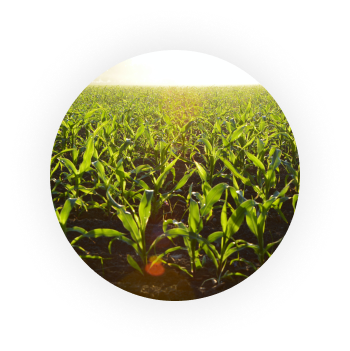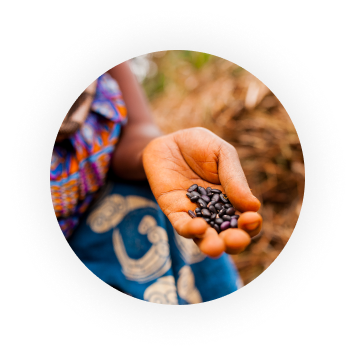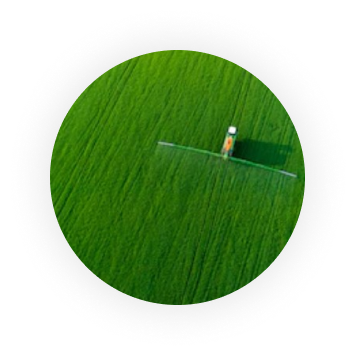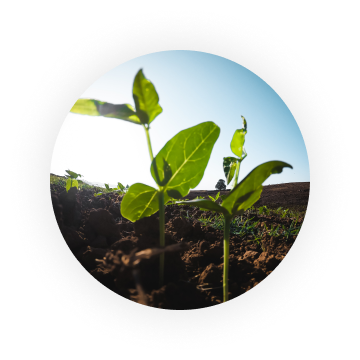









Healthy, sustainable living
We are committed to helping individuals and communities live healthy, sustainable lives. For IFBA members, this begins with the health and wellness of our employees. But we understand that a holistic approach to health and nutrition requires action at all levels of the global food system. Healthy, Sustainable Living fosters good health and nutrition, while seeking to minimize the impact on our environment. Our members have adopted initiatives to promote the health and wellbeing of communities, sustainably source ingredients, reduce food loss and waste, and mainstream sustainability practices throughout the entire food production and consumption chain.














Health and wellness
We are committed to supporting the health and wellbeing of our employees and to supporting initiatives in communities around the world.
The health and well-being of the more than 3.5 million people employed by IFBA members is an important priority for IFBA companies. All IFBA members currently offer workplace wellness programs, including working towards smoke‐free environments, to help employees improve and sustain their physical, financial, and emotional health. Our members also work to promote balanced diets and healthy, active lifestyles in communities, through school nutrition and education programs, health and wellness initiatives and efforts to expand access to food.
Building on the work in our other commitment areas, these programs contribute to SDG 3 to ensure healthy lives and promote the well-being for all, at all ages.
Promoting sustainable agriculture
The adoption of sustainable agricultural practices is vital to improving the health of people and the planet. A sustainable, resilient food system increases productivity and production while maintaining ecosystems, and positively impacts the livelihoods and social fabric of communities that produce food.
We work with suppliers and smallholder farmers to promote sustainable agriculture throughout the supply chain. Our members are working to sustainably source ingredients, including palm oil, beet and sugar cane, coffee, and wheat, and have joined initiatives to end deforestation linked to priority ingredients. Through efforts to reduce water use and replenish this essential resource, and maintain at-risk watershed areas, our members are promoting sustainable water stewardship practices. And our members have launched diverse initiatives to positively impact the social and economic influence of agriculture worldwide, from building agricultural resiliency with new technologies that increase farmer knowledge and yields to protecting and improving rural livelihoods and empowering women.
Our members’ initiatives support SDG 2 to end hunger, achieve food security and improved nutrition and promote sustainable agriculture, but this cross-cutting action area impacts all the sustainable development goals.
















Ensuring the health of our planet, today and tomorrow
Through initiatives to reduce food loss, packaging waste and greenhouse gas emissions, our members are working to make sure the global food system can sustainably feed the world’s population today, and tomorrow.
Food loss and waste occur across the entire food system and contribute to climate change, the wasting of natural resources and undermine food security. Reducing food loss and waste presents an opportunity to both enhance the sustainability of the food system and improve food security and nutrition. IFBA members are working to reduce food waste along the value chain, improving farming methods and training to help farmers reduce pre- and post-harvest losses and reducing waste in operations. Our members are also helping to change consumer behavior through labels that clearly communicate if food is safe to consume and providing information and training on how to minimize food waste.
Packaging can help limit food waste by making products safe to consume and by extending their shelf life. But for packaging to be a part of a sustainable food system, we need to find solutions that limit the impact on environmental resources while meeting our current material needs. IFBA members are working to optimize package design, increase the use of recycled materials, find alternative materials, and work towards making packaging completely recyclable.
Increasing greenhouse emissions, in part from the production and transport of food, are driving climate change. Climate change in turn, threatens to negatively impact agricultural production and our ability to feed a growing global population. As part of our systemic approach to sustainable food systems, all IFBA members have taken steps to reduce greenhouse gas emissions in the value chain, from production to manufacturing to transport and storage.
By taking action to promote responsible consumption and production (SDG 12), climate action (SDG 13), and partnerships for the goals (SDG 17), our members are also advancing the goal of zero hunger (SDG 2).

